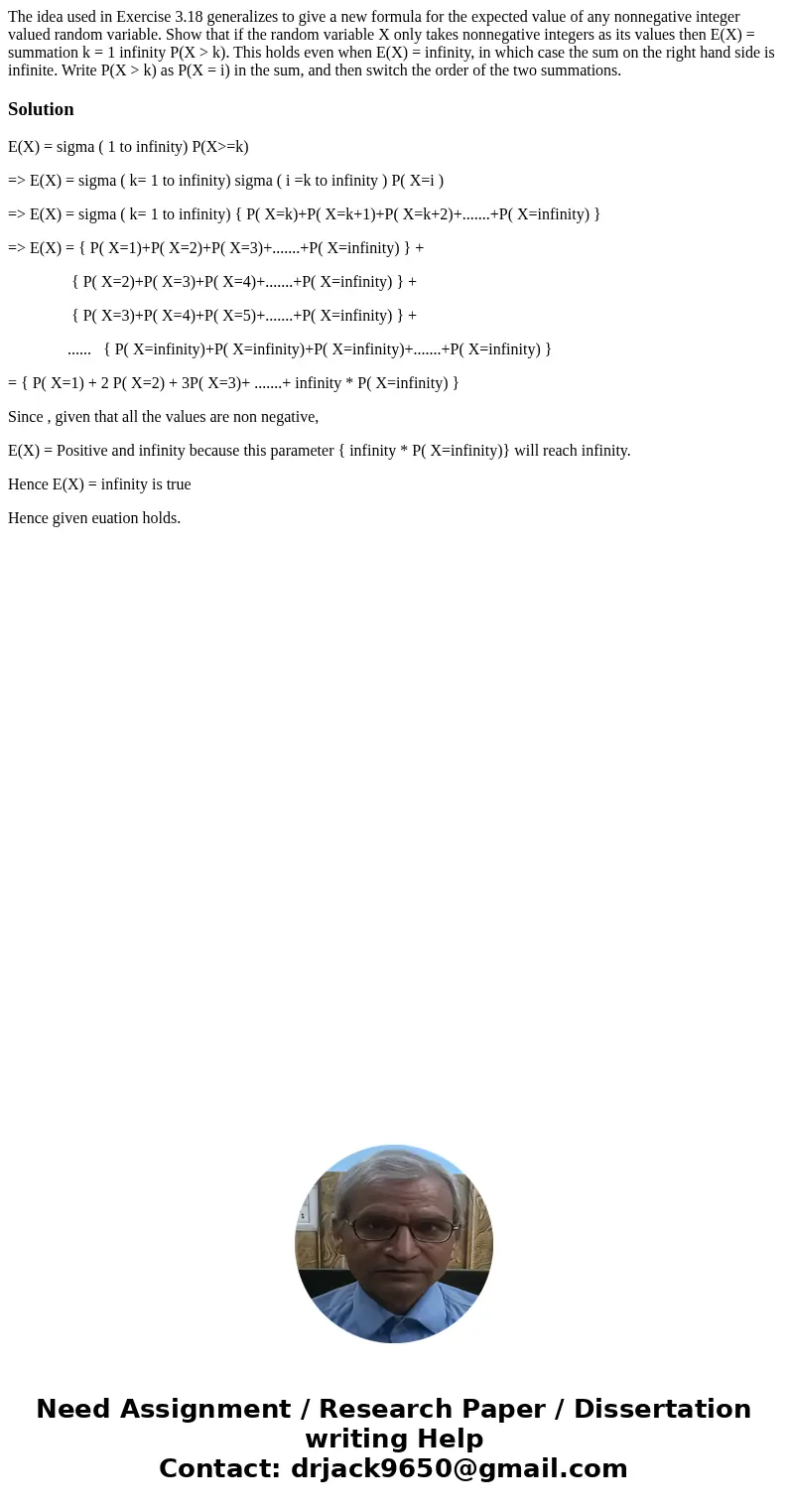The idea used in Exercise 318 generalizes to give a new form
Solution
E(X) = sigma ( 1 to infinity) P(X>=k)
=> E(X) = sigma ( k= 1 to infinity) sigma ( i =k to infinity ) P( X=i )
=> E(X) = sigma ( k= 1 to infinity) { P( X=k)+P( X=k+1)+P( X=k+2)+.......+P( X=infinity) }
=> E(X) = { P( X=1)+P( X=2)+P( X=3)+.......+P( X=infinity) } +
{ P( X=2)+P( X=3)+P( X=4)+.......+P( X=infinity) } +
{ P( X=3)+P( X=4)+P( X=5)+.......+P( X=infinity) } +
...... { P( X=infinity)+P( X=infinity)+P( X=infinity)+.......+P( X=infinity) }
= { P( X=1) + 2 P( X=2) + 3P( X=3)+ .......+ infinity * P( X=infinity) }
Since , given that all the values are non negative,
E(X) = Positive and infinity because this parameter { infinity * P( X=infinity)} will reach infinity.
Hence E(X) = infinity is true
Hence given euation holds.

 Homework Sourse
Homework Sourse